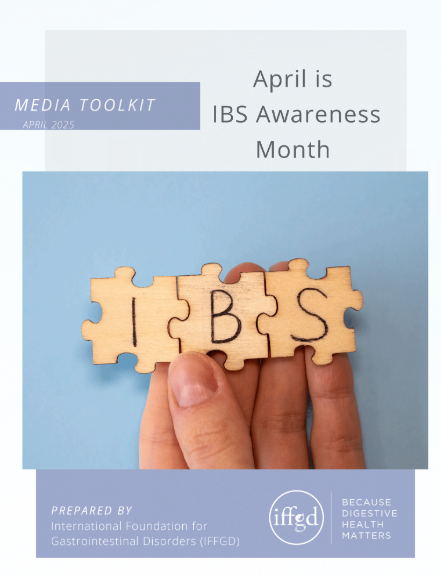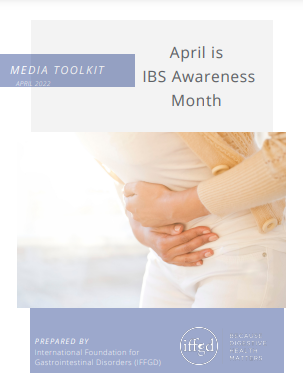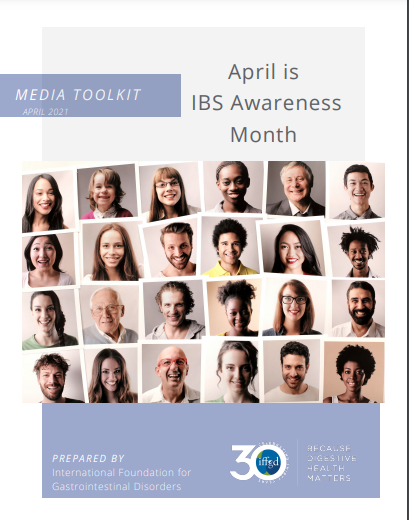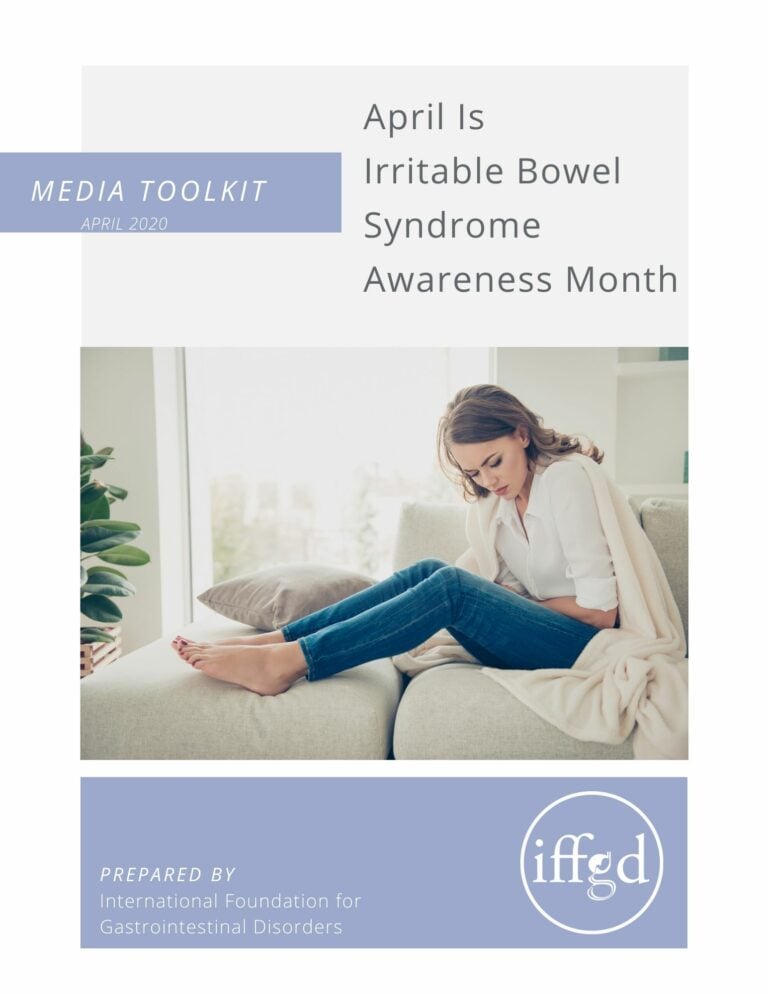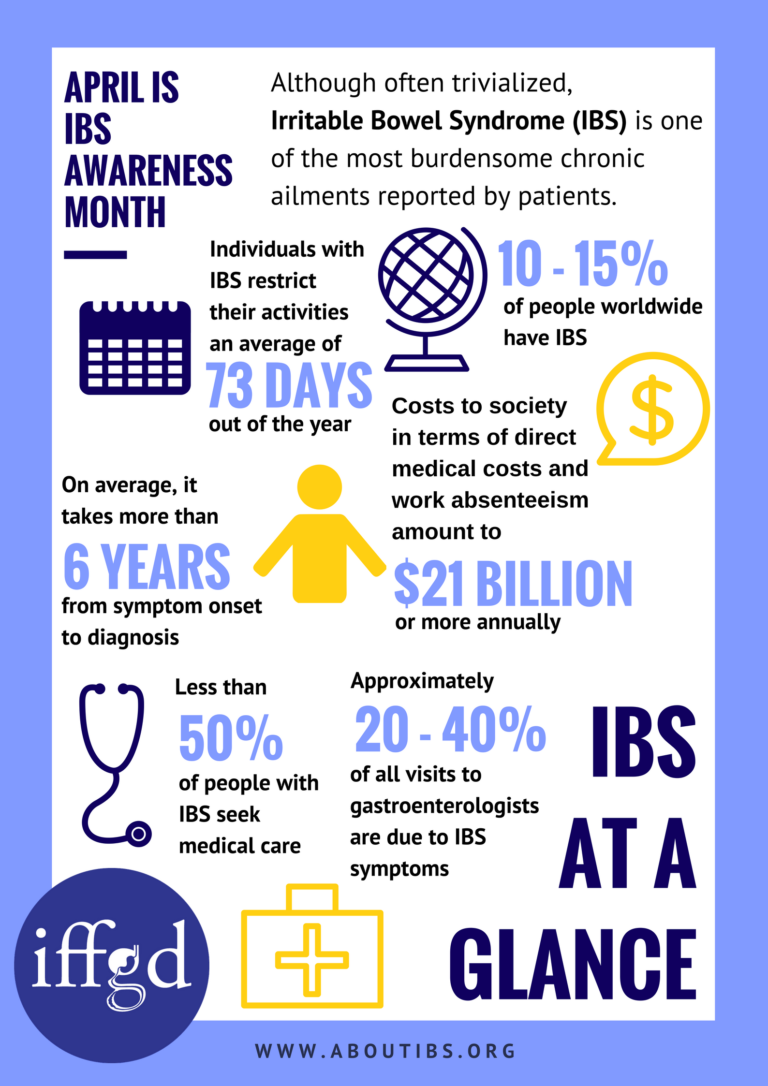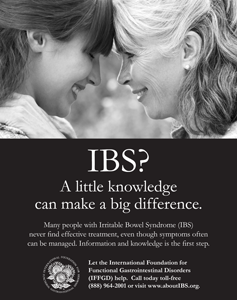April is IBS Awareness Month!
Join us in spreading awareness, breaking stigma, and supporting those with IBS
Join our social campaign
Share the hashtags #IBSAwarenessMonth and #MoreThanAStomachache
This year, IFFGD and the community raise awareness, promote understanding, and offer compassion to those living with IBS– the theme for IBS Awareness Month 2025.
We invite everyone to join our social campaign using the hashtags #IBSAwarenessMonth and #MoreThanAStomachache.
You can also join our awareness campaign by sharing information from the IBS Awareness Month Media Toolkit. To learn more about IBS, explore this website or www.youandibs.org to learn about IBS through an animated video series.
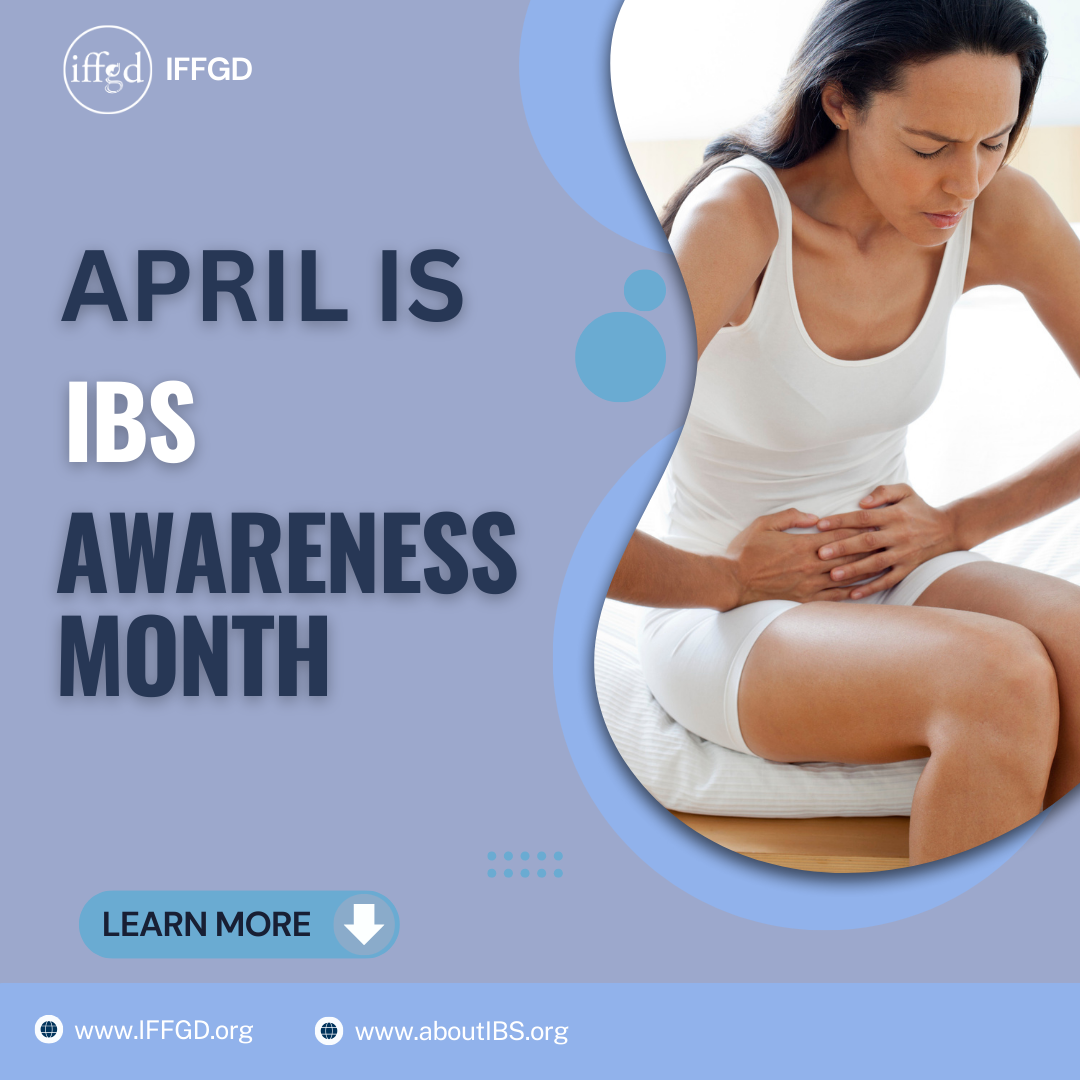

Get Involved
The more we work together to raise awareness for IBS, the greater our ability to impact positive outcomes, such as additional research, increased educational opportunities, and improved patient care for the functional GI community. Here are a few tools for you to raise the visibility of IBS in your community.
- Download and share the 2025 IBS Awareness Month Toolkit
- Send our 2025 IBS Awareness Month press release to your local media outlet or share a link to it on social media.
- Share your personal story to let others know they are not alone
- Join IFFGD and use your voice to make a difference.
- Find other resources to raise awareness for IBS in your community, including a link to contact your legislator at Advocate for Digestive Health.
- Find IFFGD on Facebook and Twitter and join the conversation.
What is IBS Awareness Month?
In 1997, IFFGD designated April as IBS Awareness Month.
If you have irritable bowel syndrome (IBS), you are not alone – IBS is common with prevalence estimated at 5% to 10% worldwide. Yet many people remain undiagnosed and unaware that their symptoms indicate a medically recognized disorder.
IBS Awareness Month is listed on the U.S. National Health Observances calendar. Health observances are days, weeks, or months devoted to promoting particular health concerns. Individuals, health professionals, teachers, community groups, and others can use these special times to sponsor health promotion events and stimulate awareness of health issues.
Awareness Toolkits
